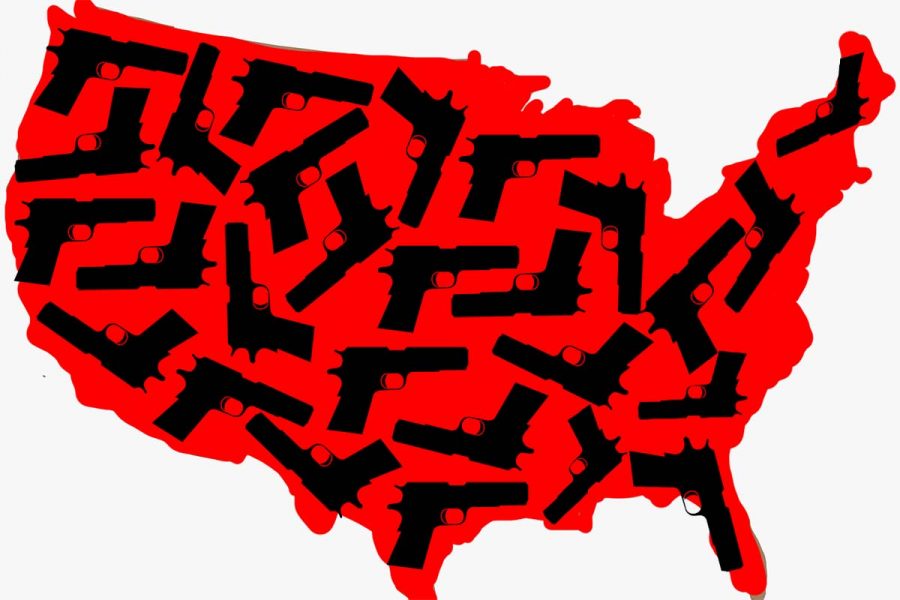Mass Shootings – the cultural problem we created
U.S. gun violence promotes violence
Photo by Victoria Van
August 16, 2018
August 1, 1966, University of Texas. April 19, 2000, Columbine High School. June 12, 2016, Pulse Nightclub. October 1, 2017, Las Vegas Harvest Music Festival. December 14, 2012, Sandy Hook Elementary. February 14, 2018, Marjory Stoneman Douglas High School. These are just a few examples of the epidemic plaguing our nation, mass shootings.
Mass shootings in the United States have tripled since 2011 with at least one mass shooting occuring every 64 days. As of April 22, 2018, the U.S. has experienced 67 mass shootings in this year alone, an average of 1.7 mass shootings a day. The U.S. holds less than 5 percent of the world’s population, yet accounts for 31 percent of global mass shooters.
What does this say about us?
Americans must confront the reality that we are a declining society of segregation and violence. No place: schools, churches, our own homes is safe from the bullets of the mentally perverse and socially rejected.
Fear of rejection and acceptance has become overwhelming to the point that the sacredness of life has become inconsequential. Those who fail to fit in or are neglected by peers develop a deep hatred for the society that promoted their ostracization. As compensation for such “injustices,” the murder of classmates, parents, even strangers have become justified.
Our youth is especially susceptible to the perverse and cruel. Young people fear being left alone, being left behind so much that even death becomes secondary to attention. Facilitated by the spread of social media, being relevant and popular has taken precedence over a communal spirit characterized by earlier generations.
Similarly, social media has become a catalyst for social dissolution. Mass media has become a platform for personal expression, and thus division. As the world grows more interconnected, we resign ourselves to a lack of privacy and importance, as we cannot compete for attention against six billion others. To become influential or known in this world, one must do something so bizarre or perverse that it catches the world’s attention. And thus, one must act in a way that goes against the collective norm is sensational.
Entertainment, accessible to all ages at any time, promotes and glorifies violence. Death and the macabre have become omnipresent through our TVs and smartphones. Even our country’s politics emphasize materialism, conformity and socioeconomic division. As the world becomes more interconnected, people become more isolated.
The reoccurring mass violence found in the United States is a result of our self-perceived superiority, pervasive isolation, and obsession with death. The American gun violence phenomenon is bred by our self-fostered policies of anger and selfishness which make up American society.
The United States must learn to care for each other again, not to subscribe to the self-isolation and bitterness that has become so commonplace. We must resign ourselves to accept tragedy, a product of our harshly competitive “me first” mentality, but become a community again.
















